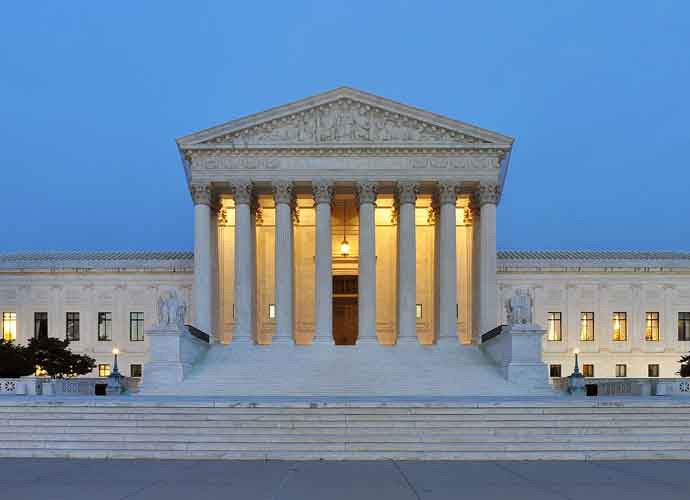Supreme Court Indicates It’s Unlikely To Strike Down Affordable Care Act In Latest Hearing
The Supreme Court appears poised to uphold the Obama-era Affordable Care Act once again — this time with a solid 6-3 conservative majority, following Amy Coney Barrett‘s appointment to the court.
The court’s decision is expected later this term.
The court heard arguments from more than a dozen GOP-dominated states on Tuesday, who argued that because a 2017 tax-cut caused one provision of the ACA to be unconstitutional, and thus the whole law should be struck down.
The law’s challengers argue that the original requirement of creating a tax penalty for noncompliance in purchasing insurance, which was negated by the Trump tax cuts, is effectively unconstitutional and that the ACA should be struck down.
Subscribe to our free weekly newsletter!
A week of political news in your in-box.
We find the news you need to know, so you don't have to.
Republicans have previously brought two challenges against the ACA to the Supreme Court, in 2012 and 2015. The Supreme Court ruled in the 2012 case that the initial individual mandate, or tax penalty, was constitutional. Chief Justice John Roberts was the deciding swing vote in that case. The 2015 case was decided 6-3.
“What’s before the court today is an enormously consequential statute,” California Solicitor General Michael Mongan said before the court. “It provides health insurance and other lifesaving benefits and protections to hundreds of millions of Americans.”
The House of Representatives’ lawyer, Donald Verrilli, who defended the ACA in 2012, argued that Congress it allowed to “adjust its policy choices” based on evidence of what is and isn’t working. He said the Congressional Budget Office in 2017 found “empirical evidence” that the penalty was not prompting more people to buy insurance.
Coney Barrett asked why the mandate should not be struck down now, since it is no longer generating revenue. However, potentially eliminating the individual mandate does not necessitate eliminating the entire law, the justices seemed to indicate.
“I think it’s hard for you to argue that Congress intended the entire act to fall if the mandate were struck down when the same Congress that lowered the penalty to zero did not even try to repeal the rest of the act,” Roberts told the challengers.
Roberts also noted the court’s doctrine of severability, which calls for the court to keep as much of a law intact as possible, even if parts of it are struck down.
“Here, Congress left the rest of the law intact when it lowered the penalty to zero. That seems to be compelling evidence on the question,” he said.
Justice Brett Kavanaugh agreed, saying, “It does seem fairly clear that the proper remedy would be to sever the mandate provision and leave the rest of the act in place, the provisions regarding preexisting conditions and the rest.”
Justice Clarence Thomas also questioned the need to strike down the entire ACA, telling the GOP challengers: “The individual mandate now has no enforcement mechanism, so it’s really hard to determine exactly what the threat is … of action against you.”
Justice Samuel Alito also weighed in, echoing the other conservative justices’ thoughts.
“At the time of the first case, there was a strong reason to believe that the individual mandate was like a part in an airplane that was essential to keep the plane flying,” Alito said. “But now the part has been taken out, and the plane has not crashed. So, if we were to decide this case the way you advocate, how would we explain why the individual mandate in its present form is essential to the operation of the act?”
The arguments come after a presidential victory by Joe Biden, who based a large part of his campaign on upholding the healthcare act, which currently covers over 23 million Americans.
Get the most-revealing celebrity conversations with the uInterview podcast!






Leave a comment